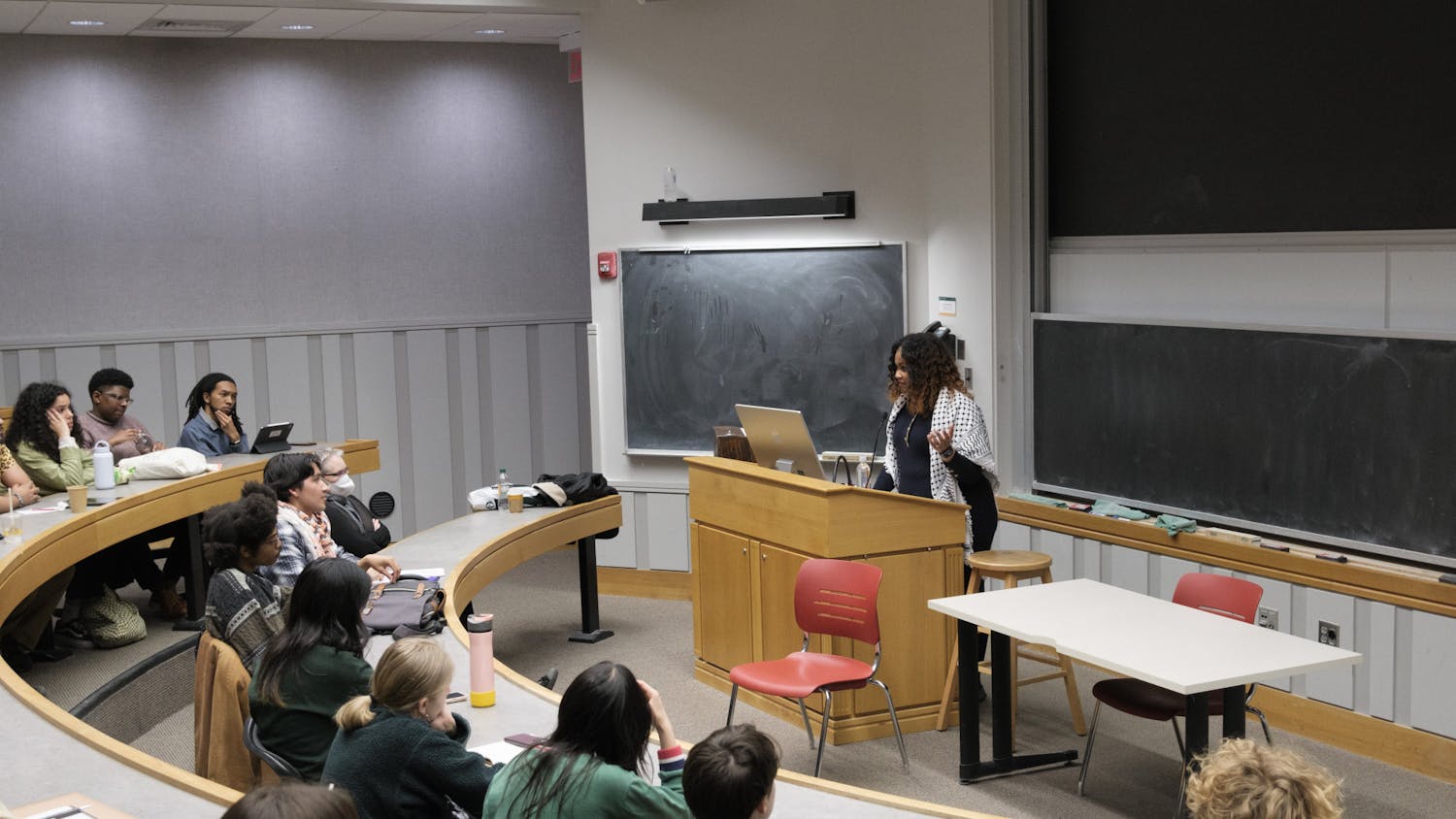While many rising seniors spend the summer term interning, working temporary jobs or taking classes, Katelyn Walker ’14 toted a Dartmouth-funded camera across towns in Alabama and Georgia, searching for documents in national and regional archives to support her geography thesis on the Tennessee Valley Authority and the New Deal.
Walker, a geography major, will present her findings on May 20, joining over 200 classmates who have completed theses this year. In total, 234 Dartmouth seniors will receive honors credit at this year’s Commencement — a significant increase from last year, when 199 seniors received honors, according to information provided by the Dean of the Faculty’s office. About 20 percent of the Class of 2014 completed a thesis project.
With 23 students completing theses, engineering leads the undergraduates arts and sciences departments in honors credits awarded this year, followed by psychological and brain sciences, English and biology with 19, 18 and 15, respectively. The government department will award 14, twice as many as last year. In other departments, like economics, theater and education, fewer students are pursuing theses, with 4, 1 and 0 respectively.
Small humanities departments — including religion, Russian, sociology, film and media studies, French and Italian and classics — will each award two credits.
Some non-departmental programs at Dartmouth also facilitate honors projects. The environmental studies program had 11 students complete projects this year, while Asian and Middle Eastern studies had six. Three senior fellows, who do not take classes during their final year, will also receive honors credit for their projects.
While many students complete honors theses, some complete major projects that require an equivalent amount of work, such as an experimental investigation or other creative activity, assistant to the Dean of Faculty Nancy Charbono said in an email.The aforementioned numbers do not include these equivalents.
Irvin Gomez ’14, a government thesis writer, said he saw theses displayed in the government department at the end of his freshman year and decided at that moment to pursue his own project.
“I made it my goal to see my name in one of those booklets at the end of my Dartmouth career,” Gomez said. “The thesis fulfilled the intellectual and academic challenge that I wanted Dartmouth to give me — I wouldn’t feel complete without it.”
Gomez’s project explores why some countries have higher homicide rates, and the extent to which state capacity determines or influences that number. He said he believes his findings are important because they can help target areas that need development aid, he said.
While Gomez originally hoped to research violence in Central America, he expanded his topic at his advisor’s encouragement. His advisor, he said, provided him with constant support, honest feedback and criticism.
“I wouldn’t have seen that potential on my own,” he said. “I can say that my project wouldn’t be what it is without my advisors for being really hard on me, on my writing, the content of my writing and their very high expectations.”
Annelise Orleck, a thesis advisor in the history department, said she enjoys watching advisees’ projects develop over time. Orleck identifies students in her classes who may be interested in writing a thesis based on their class performance. The process, while a major commitment, is rewarding for those who take on the challenge, she said.
“If you believe that part of the culminating experience of undergraduate college life is to graduate with an original piece of work that is yours and that is big, and that you can be proud of, then you should do it,” she said. “But it’s a serious undertaking.”
Orleck said she starts working with advisees during the spring term of their junior year to develop a proposal and seek grant funding for their research. After conducting research over the summer, thesis writers take two classes during the fall and winter terms of their senior year to guide the projects.
During senior year, history students write and re-write their theses in preparation for presentations in April and May. While the process takes four terms, summer research and many hours, Orleck characterizes the workloads as “labors of love.”
“Psychologically, emotionally and intellectually, it’s so different to graduate with an original piece of research and scholarship of your own than it is not to,” she said.
Walker said the prospect of creating an original piece of work excited her. The goal of a thesis, she said, is for students to immerse themselves in topics they feel passionate about.
Everyone should think hard about his or her motivations before taking on the task, Gomez said.
“If you just want the honors next to your diploma, I’d say it’s not worth it,” he said. “You really have to enjoy writing and doing research.”
While honors in the major are not indicated on the diploma, they are listed in the Commencement program, Charbono said, with honors or high honors in the major entered on a student’s permanent record.
Other institutions vary in the percentage of students who complete senior theses, with some colleges requiring their students to complete thesis or comparable projects. At Princeton University, all bachelor of arts students — and many engineering students — are required to write a senior thesis. At Brown University, 33 percent of humanities concentrators, 35 percent of life and medical sciences concentrators, 25 percent of physical science concentrators and 13 percent of social science concentrators completed theses and graduated with honors last year.



